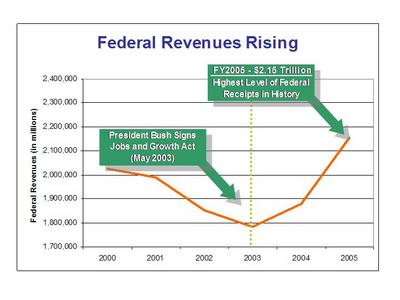
(Warning…spoiler alert)
Superman Returns is the leader in box office sales this week. American moviegoers love their superheroes, as the success of the Spiderman and Batman series, as well as The Incredibles and the X-Men proves. There was a
little consternation that the editor of the Daily Planet gave orders to one of his staff to find out if Superman still stands for “truth, justice, and all that stuff,” and not, as it was 50 years ago, “truth, justice, and the American way.” Producers suggested that overseas audiences might have a different interpretation of the phrase “the American way,” and it is probably not favorable. But if conservatives are offended at the excising of that phrase from the Superman lexicon, and choose to avoid seeing
Superman Returns in protest, they’re missing a rather conservative movie, with Christian metaphors that rival
The Lion, The Witch, and The Wardrobe for their subtle brilliance.
Lex Luthor is a criminal genius who has been freed from prison prematurely due to a technicality: Superman left earth to seek what remained of his home planet, and therefore could not testify against his arch-enemy. Luthor taunts him that he was so ignorant that he thought that a once-captured villain would be incarcerated for good; not so fast, said he—what about
Miranda and
habeas corpus, etc.? In short, in Metropolis, the accused have rights, too.
In the Supreme Court’s
final decision of the 2006 term,
Hamdan v. Rumsfeld, the litigator was an accused terrorist captured from the battlefields of Afghanistan and jailed at the US facilities at Guantanamo Bay, Cuba. The case was an important test of what should be done with these combatants. Were they entitled to protection and humane treatment under the Geneva Conventions? The Bush administration argued that they were not, since they did not fight under national colors nor in a uniform that distinguished them from the non-combatant civilian population. The president also made the case that these alleged (?) terrorists were not wanted in their home countries and that, since they were not US citizens, they were not entitled to US Constitutional protections of any civil liberties but ought to face a military tribunal for their justice.
At the appellate level, the court found in favor of the administration. Because John Roberts, now chief justice, was in the majority in that decision, he recused himself from the case. In what has been termed a stinging rebuke of the Bush administration, the remaining 8 justices ruled 5-3 against the Bush position. They declared that, since the US and Afghanistan were signatories of the Geneva Conventions, America was obligated to honor its pledge, and that military tribunals were inappropriate. However, the court left it to Congress to
craft a strategy for the disposition of the Guantanamo-held captives.
The Hamdan case is a prototypical checks and balances issue. Congress had passed legislation declaring that the US Judicial system had no jurisdiction over these enemy combatants. Obviously, the Supreme Court felt otherwise. The Executive branch insisted that the constitutional powers granted to the President as commander-in-chief allowed him to suspend Miranda, habeas corpus, and all those other technicalities that Lex Luthor used to spring himself from the Big House. Obviously, the Supreme Court felt otherwise.
Liberals are ecstatic. They see the outcome of this case as limiting executive power, which, in their collective mind, has been arrogantly abused by BushCheneyRove Inc. Certainly this is the focus of one of your questions to discuss this week: English and American constitutionalism limited the power of the executive and believed that kings, presidents, and all in government were human beings responsible to God’s law above all else, and could not get away with murder. Your second question deals with checks and balances, and the Hamdan case is a vivid reminder of the tensions that occur when all three branches of our government feel that they are the last word on an issue. What light does the Fall into sin shed on the necessity of checks and balances?
Share your comments on the focus questions for chapter 5 of
How Should we Then Live, on
Superman Returns, the
Hamdan case, and anything else interesting or relevant.





